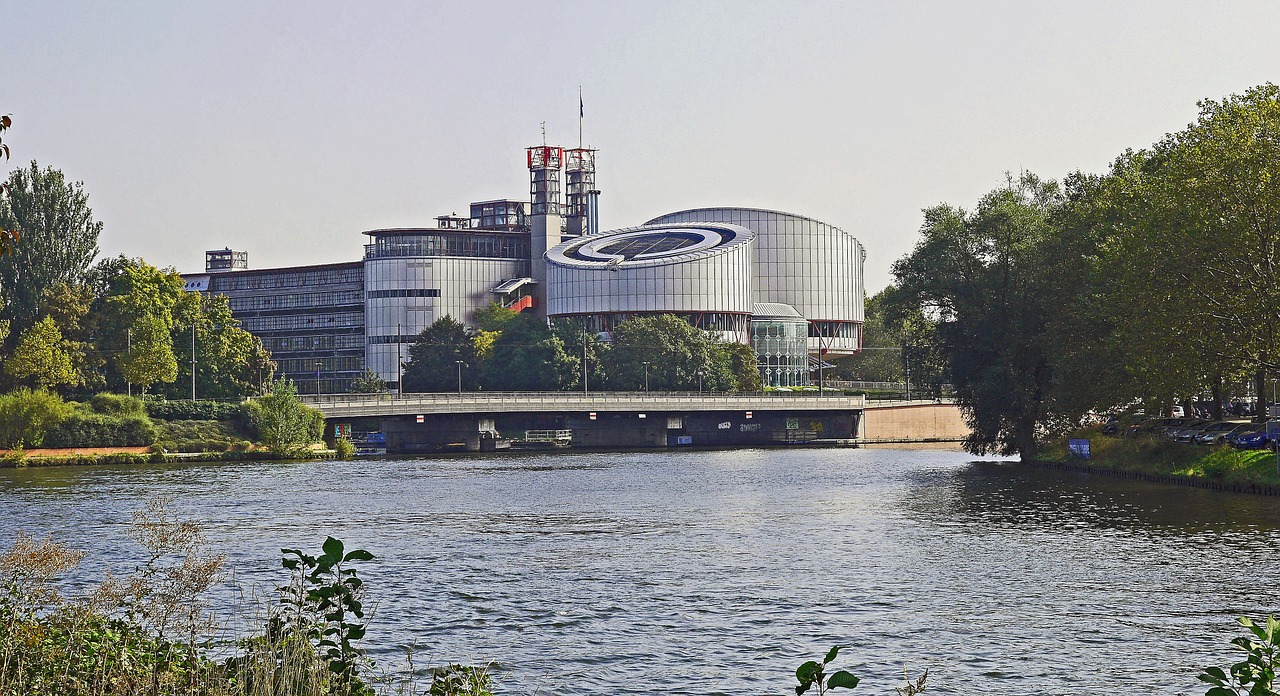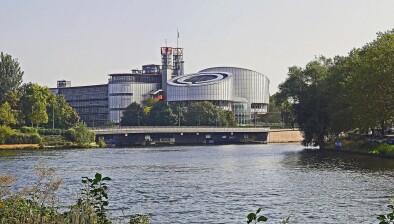ECtHR: Russia violated Article 10 ECHR by suppressing Ukraine war critics

The European Court of Human Rights (ECtHR) has ruled against Russia in a case brought by two media organisations and 178 individuals over the criminalisation of dissent around the war on Ukraine.
In today’s Chamber judgment, the court held unanimously that Russia had violated Article 10 of the European Convention on Human Rights, which guarantees freedom of expression.
Shortly after the full-scale invasion of Ukraine on 24 February 2022, the Russian authorities imposed strict reporting restrictions which required the media to rely exclusively on official sources of information.
On 4 March 2022, Russia also introduced new laws criminalising the dissemination of “knowingly false information” about the military as well as public actions aimed at “discrediting” the armed forces.
The ECtHR case was brought by Novaya Gazeta and Dozhd TV, independent media organisations which were shut down by the authorities, and 178 individuals who were convicted under the new legislation, either in criminal or administrative proceedings.
The acts for which the individuals were convicted ranged from the use of the phrase “No to War” to wearing clothes in the colours of the Ukrainian flag and sharing anti-war messages on social media — including symbolic expressions of peace, such as displaying a white dove.
The court found there had been a systemic and widespread pattern of reporting restrictions related to the war in Ukraine, revealing a co-ordinated effort to suppress dissent rather than counter any threat to national security.
The national courts had criminalised any reporting/statements that contradicted the official narrative describing the invasion of Ukraine as a “special military operation”.
No effort had been made to balance the competing interests at stake, in particular to take into account a matter of crucial interest to the public, namely a major armed conflict and allegations of war crimes.
The court also held, unanimously, that there had been a violation of Article 34 (right of individual application) concerning the termination of Novaya Gazeta’s publication licence and the blocking of access to its websites despite interim measures previously issued by the court.
Lastly, it held, unanimously, that there had been a number of other violations of the ECHR with regard to five of the individual applicants, variously:
- Article 3 (prohibition of inhuman or degrading treatment) as concerned confinement to a metal cage and narrow glass cabin during hearings about detention;
- Article 5 §§ 1, 3 and 4 (right to liberty and security) as concerned arrests, pre-trial detention and delays in examining appeals against detention orders; and
- Article 8 (right to respect for private and family life) with regard to unjustified searches of residences.
The court ordered Russia to pay the applicants varying amounts in respect of pecuniary damage, set out in a lengthy appendix, as well as up to €7,500 in non-pecuniary damage and up to €850 in expenses.
Russia ceased to be party to the ECHR in September 2022 as a result of its expulsion from the Council of Europe in response to its invasion of Ukraine.
The court retains jurisdiction over applications lodged before that date, though Russia no longer recognises this.








